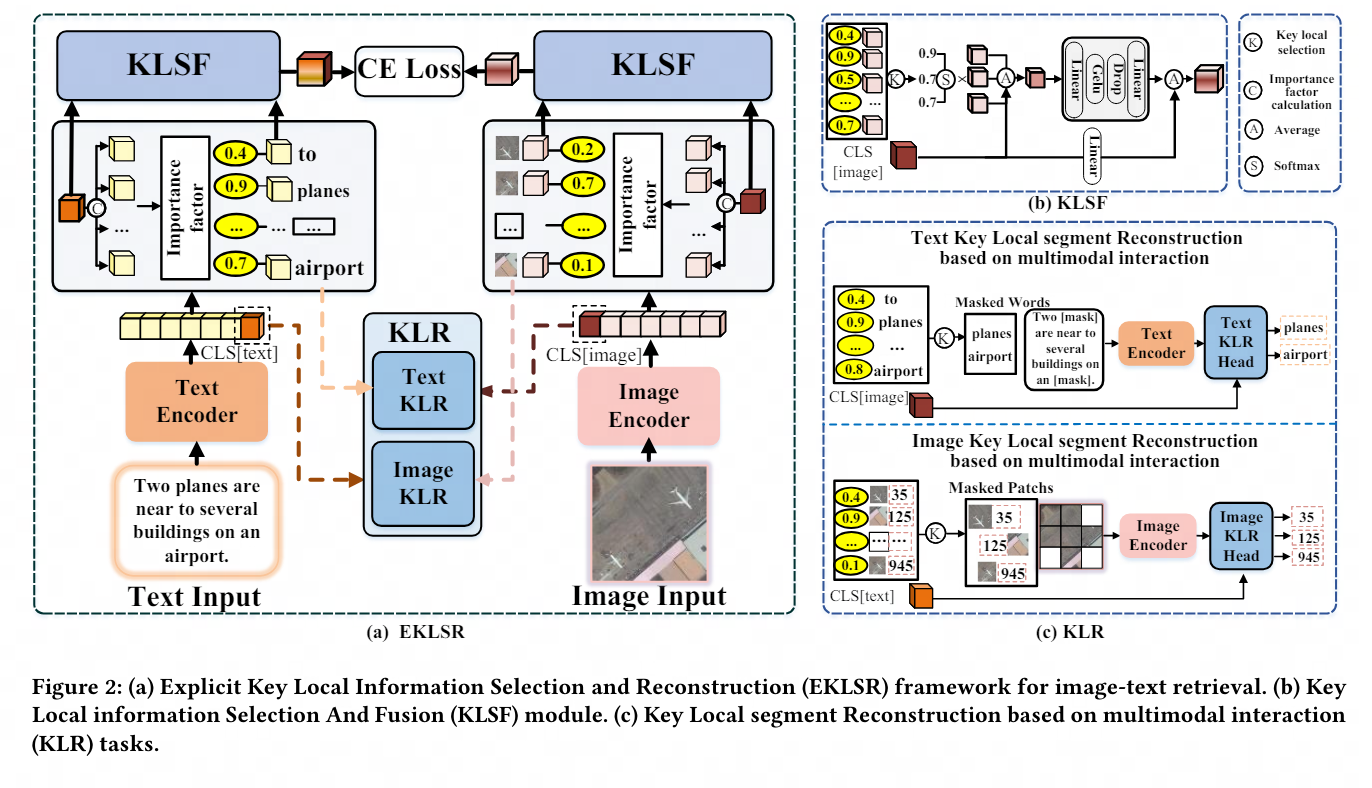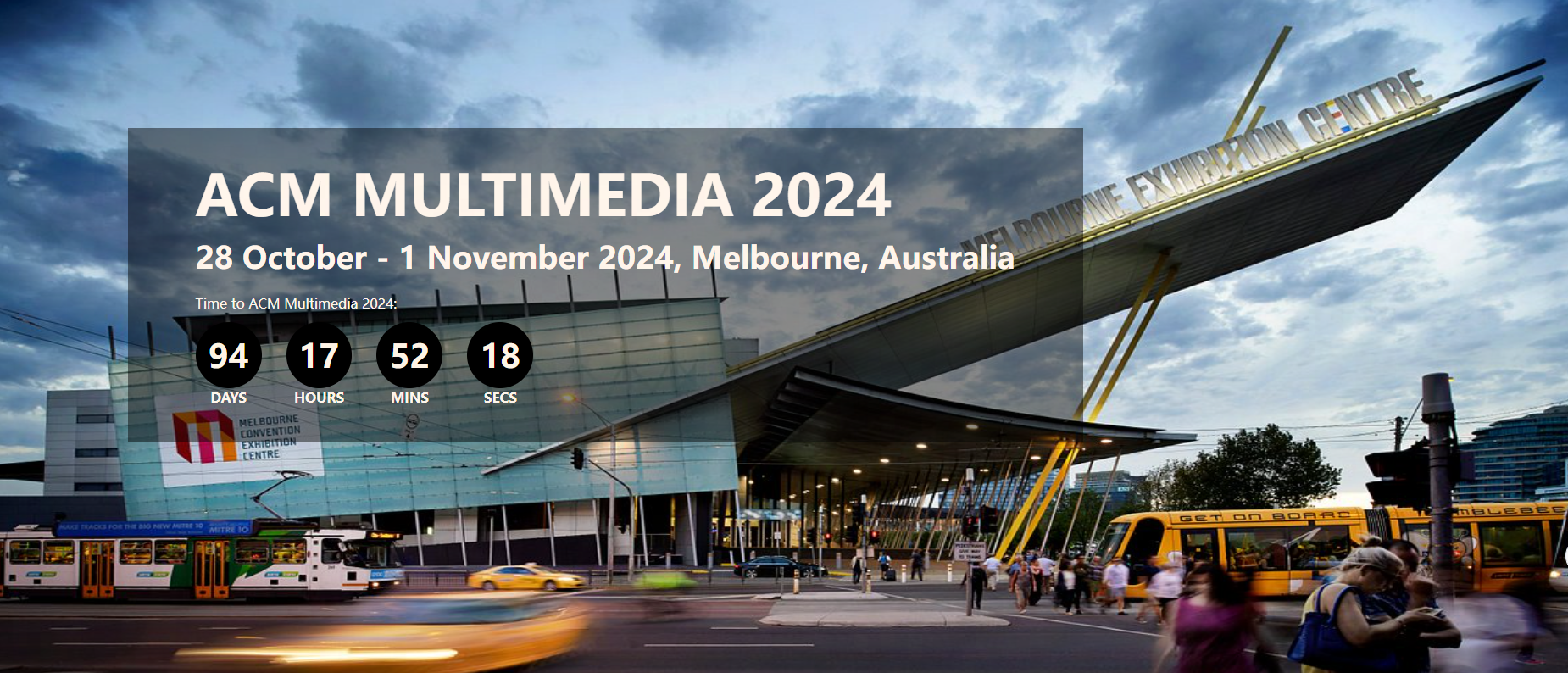 Technology peripherals
Technology peripherals
 AI
AI
 ACM MM2024 | NetEase Fuxi's multimodal research gained international recognition again, promoting new breakthroughs in cross-modal understanding in specific fields
ACM MM2024 | NetEase Fuxi's multimodal research gained international recognition again, promoting new breakthroughs in cross-modal understanding in specific fields
ACM MM2024 | NetEase Fuxi's multimodal research gained international recognition again, promoting new breakthroughs in cross-modal understanding in specific fields

- The research direction of this paper involves visual language pre-training (VLP), cross-modal image and text retrieval (CMITR) and other fields. This selection marks the re-international recognition of NetEase Fuxi Lab’s multi-modal capabilities. Currently, the relevant technology has been applied to NetEase Fuxi’s self-developed multi-modal intelligent assistant “Dan Qing Yue”.
- ACM MM was initiated by the Association for Computing Machinery (ACM). It is the most influential top international conference in the field of multimedia processing, analysis and computing. It is also a Class A international academic conference in the field of multimedia recommended by the China Computer Federation. As the top conference in the field, ACM MM has received widespread attention from well-known manufacturers and scholars at home and abroad. This year's ACM MM received a total of 4385 valid manuscripts, of which 1149 were accepted by the conference, with an acceptance rate of 26.20%.
As a leading artificial intelligence research institution in China, NetEase Fuxi has accumulated nearly six years of experience in large-scale model research, has rich algorithm and engineering experience, and has created dozens of text and multi-modal pre-training Models include large models for text understanding and generation, large models for image and text understanding, large models for image and text generation, etc. These achievements not only effectively promote the application of large models in the game field, but also lay a solid foundation for the development of cross-modal understanding capabilities. Cross-modal understanding capabilities help to better integrate multiple domain knowledge and align rich data modalities and information.
On this basis, NetEase Fuxi further innovated based on the large model of image and text understanding, and proposed a cross-modal retrieval method based on the selection and reconstruction of key local information to solve the problem of image text in specific fields for multi-modal agents. Interaction issues lay the technical foundation.
The following is a summary of the selected papers:
"Selection and Reconstruction of Key Locals: A Novel Specific Domain Image-Text Retrieval Method"
Selection and Reconstruction of Key Local Information: A Novel Specific Domain Image and Text Retrieval Method
Keywords: key local information, fine-grained, interpretable
Involved fields: visual language pre-training (VLP), cross-modal image and text retrieval (CMITR)
In recent years, with the visual language pre-training (Vision- With the rise of Language Pretraining (VLP) models, significant progress has been made in the field of Cross-Modal Image-Text Retrieval (CMITR). Although VLP models like CLIP perform well in domain-general CMITR tasks, their performance often falls short in Specific Domain Image-Text Retrieval (SDITR). This is because a specific domain often has unique data characteristics that distinguish it from the general domain.
In a specific domain, images may exhibit a high degree of visual similarity between them, while semantic differences tend to focus on key local details, such as specific object areas in the image or meaningful words in the text. Even small changes in these local segments can have a significant impact on the entire content, highlighting the importance of this critical local information. Therefore, SDITR requires the model to focus on key local information fragments to enhance the expression of image and text features in a shared representation space, thereby improving the alignment accuracy between images and text.
This topic explores the application of visual language pre-training models in image-text retrieval tasks in specific fields, and studies the issue of local feature utilization in image-text retrieval tasks in specific fields. The main contribution is to propose a method to exploit discriminative fine-grained local information to optimize the alignment of images and text in a shared representation space.
To this end, we design an explicit key local information selection and reconstruction framework and a key local segment reconstruction strategy based on multi-modal interaction. These methods effectively utilize discriminative fine-grained local information, thereby significantly improving image and Extensive and sufficient experiments on the quality of text alignment in shared space demonstrate the advancement and effectiveness of the proposed strategy.
Special thanks to the IPIU Laboratory of Xi'an University of Electronic Science and Technology for its strong support and important research contribution to this paper.

Currently, NetEase Fuxi’s multi-modal understanding capabilities have been widely used in multiple business departments of NetEase Group, including NetEase Leihuo, NetEase Cloud Music, NetEase Yuanqi, etc. These applications cover a variety of scenarios such as innovative text-based face pinching gameplay in games, cross-modal resource search, personalized content recommendations, etc., demonstrating huge business value.
In the future, with the in-depth research and technological advancement, this achievement is expected to promote the widespread application of artificial intelligence technology in education, medical care, e-commerce and other industries, providing users with a more personalized and intelligent service experience. NetEase Fuxi will also continue to deepen exchanges and cooperation with top academic institutions at home and abroad, conduct in-depth exploration in more cutting-edge research fields, jointly promote the development of artificial intelligence technology, and contribute to building a more efficient and smarter society.
Scan the QR code below to experience the "Picture Appointment" immediately and enjoy the multi-modal interactive experience with pictures and texts that "understand you better"!

The above is the detailed content of ACM MM2024 | NetEase Fuxi's multimodal research gained international recognition again, promoting new breakthroughs in cross-modal understanding in specific fields. For more information, please follow other related articles on the PHP Chinese website!

Hot AI Tools

Undresser.AI Undress
AI-powered app for creating realistic nude photos

AI Clothes Remover
Online AI tool for removing clothes from photos.

Undress AI Tool
Undress images for free

Clothoff.io
AI clothes remover

Video Face Swap
Swap faces in any video effortlessly with our completely free AI face swap tool!

Hot Article

Hot Tools

Notepad++7.3.1
Easy-to-use and free code editor

SublimeText3 Chinese version
Chinese version, very easy to use

Zend Studio 13.0.1
Powerful PHP integrated development environment

Dreamweaver CS6
Visual web development tools

SublimeText3 Mac version
God-level code editing software (SublimeText3)

Hot Topics
 1664
1664
 14
14
 1421
1421
 52
52
 1315
1315
 25
25
 1266
1266
 29
29
 1239
1239
 24
24
 Bytedance Cutting launches SVIP super membership: 499 yuan for continuous annual subscription, providing a variety of AI functions
Jun 28, 2024 am 03:51 AM
Bytedance Cutting launches SVIP super membership: 499 yuan for continuous annual subscription, providing a variety of AI functions
Jun 28, 2024 am 03:51 AM
This site reported on June 27 that Jianying is a video editing software developed by FaceMeng Technology, a subsidiary of ByteDance. It relies on the Douyin platform and basically produces short video content for users of the platform. It is compatible with iOS, Android, and Windows. , MacOS and other operating systems. Jianying officially announced the upgrade of its membership system and launched a new SVIP, which includes a variety of AI black technologies, such as intelligent translation, intelligent highlighting, intelligent packaging, digital human synthesis, etc. In terms of price, the monthly fee for clipping SVIP is 79 yuan, the annual fee is 599 yuan (note on this site: equivalent to 49.9 yuan per month), the continuous monthly subscription is 59 yuan per month, and the continuous annual subscription is 499 yuan per year (equivalent to 41.6 yuan per month) . In addition, the cut official also stated that in order to improve the user experience, those who have subscribed to the original VIP
 Context-augmented AI coding assistant using Rag and Sem-Rag
Jun 10, 2024 am 11:08 AM
Context-augmented AI coding assistant using Rag and Sem-Rag
Jun 10, 2024 am 11:08 AM
Improve developer productivity, efficiency, and accuracy by incorporating retrieval-enhanced generation and semantic memory into AI coding assistants. Translated from EnhancingAICodingAssistantswithContextUsingRAGandSEM-RAG, author JanakiramMSV. While basic AI programming assistants are naturally helpful, they often fail to provide the most relevant and correct code suggestions because they rely on a general understanding of the software language and the most common patterns of writing software. The code generated by these coding assistants is suitable for solving the problems they are responsible for solving, but often does not conform to the coding standards, conventions and styles of the individual teams. This often results in suggestions that need to be modified or refined in order for the code to be accepted into the application
 Seven Cool GenAI & LLM Technical Interview Questions
Jun 07, 2024 am 10:06 AM
Seven Cool GenAI & LLM Technical Interview Questions
Jun 07, 2024 am 10:06 AM
To learn more about AIGC, please visit: 51CTOAI.x Community https://www.51cto.com/aigc/Translator|Jingyan Reviewer|Chonglou is different from the traditional question bank that can be seen everywhere on the Internet. These questions It requires thinking outside the box. Large Language Models (LLMs) are increasingly important in the fields of data science, generative artificial intelligence (GenAI), and artificial intelligence. These complex algorithms enhance human skills and drive efficiency and innovation in many industries, becoming the key for companies to remain competitive. LLM has a wide range of applications. It can be used in fields such as natural language processing, text generation, speech recognition and recommendation systems. By learning from large amounts of data, LLM is able to generate text
 Can fine-tuning really allow LLM to learn new things: introducing new knowledge may make the model produce more hallucinations
Jun 11, 2024 pm 03:57 PM
Can fine-tuning really allow LLM to learn new things: introducing new knowledge may make the model produce more hallucinations
Jun 11, 2024 pm 03:57 PM
Large Language Models (LLMs) are trained on huge text databases, where they acquire large amounts of real-world knowledge. This knowledge is embedded into their parameters and can then be used when needed. The knowledge of these models is "reified" at the end of training. At the end of pre-training, the model actually stops learning. Align or fine-tune the model to learn how to leverage this knowledge and respond more naturally to user questions. But sometimes model knowledge is not enough, and although the model can access external content through RAG, it is considered beneficial to adapt the model to new domains through fine-tuning. This fine-tuning is performed using input from human annotators or other LLM creations, where the model encounters additional real-world knowledge and integrates it
 Five schools of machine learning you don't know about
Jun 05, 2024 pm 08:51 PM
Five schools of machine learning you don't know about
Jun 05, 2024 pm 08:51 PM
Machine learning is an important branch of artificial intelligence that gives computers the ability to learn from data and improve their capabilities without being explicitly programmed. Machine learning has a wide range of applications in various fields, from image recognition and natural language processing to recommendation systems and fraud detection, and it is changing the way we live. There are many different methods and theories in the field of machine learning, among which the five most influential methods are called the "Five Schools of Machine Learning". The five major schools are the symbolic school, the connectionist school, the evolutionary school, the Bayesian school and the analogy school. 1. Symbolism, also known as symbolism, emphasizes the use of symbols for logical reasoning and expression of knowledge. This school of thought believes that learning is a process of reverse deduction, through existing
 To provide a new scientific and complex question answering benchmark and evaluation system for large models, UNSW, Argonne, University of Chicago and other institutions jointly launched the SciQAG framework
Jul 25, 2024 am 06:42 AM
To provide a new scientific and complex question answering benchmark and evaluation system for large models, UNSW, Argonne, University of Chicago and other institutions jointly launched the SciQAG framework
Jul 25, 2024 am 06:42 AM
Editor |ScienceAI Question Answering (QA) data set plays a vital role in promoting natural language processing (NLP) research. High-quality QA data sets can not only be used to fine-tune models, but also effectively evaluate the capabilities of large language models (LLM), especially the ability to understand and reason about scientific knowledge. Although there are currently many scientific QA data sets covering medicine, chemistry, biology and other fields, these data sets still have some shortcomings. First, the data form is relatively simple, most of which are multiple-choice questions. They are easy to evaluate, but limit the model's answer selection range and cannot fully test the model's ability to answer scientific questions. In contrast, open-ended Q&A
 SK Hynix will display new AI-related products on August 6: 12-layer HBM3E, 321-high NAND, etc.
Aug 01, 2024 pm 09:40 PM
SK Hynix will display new AI-related products on August 6: 12-layer HBM3E, 321-high NAND, etc.
Aug 01, 2024 pm 09:40 PM
According to news from this site on August 1, SK Hynix released a blog post today (August 1), announcing that it will attend the Global Semiconductor Memory Summit FMS2024 to be held in Santa Clara, California, USA from August 6 to 8, showcasing many new technologies. generation product. Introduction to the Future Memory and Storage Summit (FutureMemoryandStorage), formerly the Flash Memory Summit (FlashMemorySummit) mainly for NAND suppliers, in the context of increasing attention to artificial intelligence technology, this year was renamed the Future Memory and Storage Summit (FutureMemoryandStorage) to invite DRAM and storage vendors and many more players. New product SK hynix launched last year
 SOTA performance, Xiamen multi-modal protein-ligand affinity prediction AI method, combines molecular surface information for the first time
Jul 17, 2024 pm 06:37 PM
SOTA performance, Xiamen multi-modal protein-ligand affinity prediction AI method, combines molecular surface information for the first time
Jul 17, 2024 pm 06:37 PM
Editor | KX In the field of drug research and development, accurately and effectively predicting the binding affinity of proteins and ligands is crucial for drug screening and optimization. However, current studies do not take into account the important role of molecular surface information in protein-ligand interactions. Based on this, researchers from Xiamen University proposed a novel multi-modal feature extraction (MFE) framework, which for the first time combines information on protein surface, 3D structure and sequence, and uses a cross-attention mechanism to compare different modalities. feature alignment. Experimental results demonstrate that this method achieves state-of-the-art performance in predicting protein-ligand binding affinities. Furthermore, ablation studies demonstrate the effectiveness and necessity of protein surface information and multimodal feature alignment within this framework. Related research begins with "S




